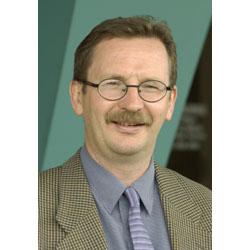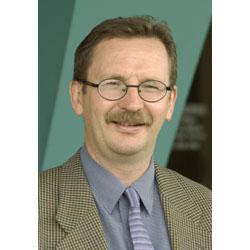Nurses will take on functions of GPs, say authors
Published on 12 September, 2003
Authors of an article in this month's ‘Australian Family Physician’ journal predict that nurses will take on many of the functions of GPs in remote and rural Australia.
The authors - from universities in Australia, Scotland and the USA - argue for a fundamental reorganisation of primary health care practices to enable family nurse practitioners (FNPs) to be the first point of contact and to enable family health nurses (FHNs) to broker solutions for multiple deprivation and social exclusion.
 Co-author Prof William Lauder, from Central Queensland University, said these practitioners would identify, diagnose, refer or treat individuals, families and communities, depending on area of responsibility.
Co-author Prof William Lauder, from Central Queensland University, said these practitioners would identify, diagnose, refer or treat individuals, families and communities, depending on area of responsibility.
"Nurses would act as gatekeepers to health and social care services," he said.
"A fundamental restructuring would see family nurse practitioners as well as GPs as first point of contact for rural and remote communities, and family health nurses as the main care provider for rural communities. "Role interchangeability should focus on whether the person can practise competently rather than on which professional tribe should have a give right to fulfill this role." The article identifies obstacles including concerns of GPs and nurses, the inertia of large organisations and the highly unionised and rule-bound nature of Australian nursing. The article lists examples from the United Kingdom, USA and Europe where nurses are taking on more of a primary health care role.
Among the other points made in the article are that: Nurses are the largest and best positioned workforce element in rural health care; Trials demonstrate nurse practitioners (in general) have similar patient outcomes to GPs and better patient satisfaction; Appropriately trained nurses can take on functions currently undertaken by GPs in a more cost effective manner while maintaining quality; The FHN would coordinate health care, social care, housing, community building and education services for vulnerable families and communities; FNP roles could include taking histories, conducting physical examinations, ordering, performing and interpreting appropriate diagnostic and laboratory tests, and prescription of pharmacological agents and other treatments; Statutory impediments are sometimes mooted, but history is littered with nurses taking on functions that were once medical functions; There is existing evidence that Australian remote area nurses have 'de facto' undertaken the roles of both nurse and GP.
 The article's authors recommend a nationally coordinated strategy to reorganise family practice in remote and rural areas, with a major objective of tackling social exclusion. They recommend a national education plan with arrangements for shared learning between nurses and GPs at the postgraduate level. "More contentious is the need for nurse practitioners to be give the same standing and contractual arrangements as GPs," the authors say. "Family health nurses and FNPs will be the cornerstone of primary care services; it is just a matter of when!" As well as Prof Lauder from CQU, the authors include Dr Siobhan Sharkey from Scotland's University of Stirling and Prof Sally Reel from the University of Arizona in America. ENDS Prof Lauder 0422 732 064 or 4930 6537 or w.lauder@cqu.edu.au.
The article's authors recommend a nationally coordinated strategy to reorganise family practice in remote and rural areas, with a major objective of tackling social exclusion. They recommend a national education plan with arrangements for shared learning between nurses and GPs at the postgraduate level. "More contentious is the need for nurse practitioners to be give the same standing and contractual arrangements as GPs," the authors say. "Family health nurses and FNPs will be the cornerstone of primary care services; it is just a matter of when!" As well as Prof Lauder from CQU, the authors include Dr Siobhan Sharkey from Scotland's University of Stirling and Prof Sally Reel from the University of Arizona in America. ENDS Prof Lauder 0422 732 064 or 4930 6537 or w.lauder@cqu.edu.au.

